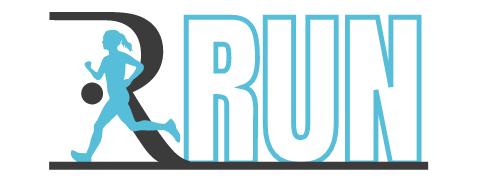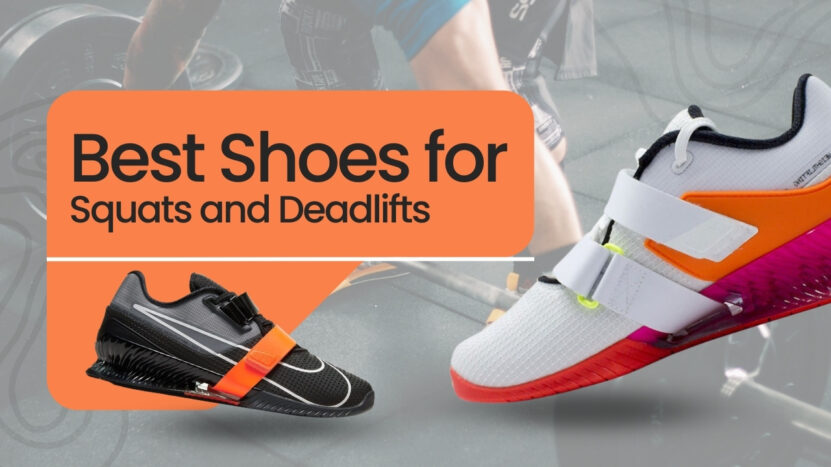It’s no secret that squats and deadlifts are the foundation of any serious strength training program. These two powerhouse exercises work together to build functional strength and muscle mass, offering benefits that extend far beyond the gym. But when it comes to maximizing your performance and minimizing injury risk, your choice of footwear can be a game-changer.
In this comprehensive guide, we’ll delve into the world of shoes specifically designed for squats and deadlifts, exploring the top options on the market and offering expert advice on how to select the perfect pair for your needs. Whether you’re a beginner or a seasoned powerlifter, strap in and prepare to elevate your training to new heights with the ultimate footwear for squats and deadlifts.
Why Specialized Shoe Matter
You might wonder, “Why can’t I just wear my regular sneakers or cross-trainers for squats and deadlifts?” The answer lies in the unique demands these exercises place on your body. Squats and deadlifts require a high degree of stability, balance, and proper biomechanics to execute with optimal power and safety.
Standard athletic shoes often have cushioned soles, which can be detrimental to your performance during these lifts. Cushioning can cause instability and rob you of the force you need to generate to lift heavy loads. Specialized shoes for squats and deadlifts are designed to provide a stable, non-compressible platform for your feet, ensuring that every ounce of energy you put into your lifts is maximized.
Stepping Up Your Game with These Picks
1. Adidas Powerlift 4
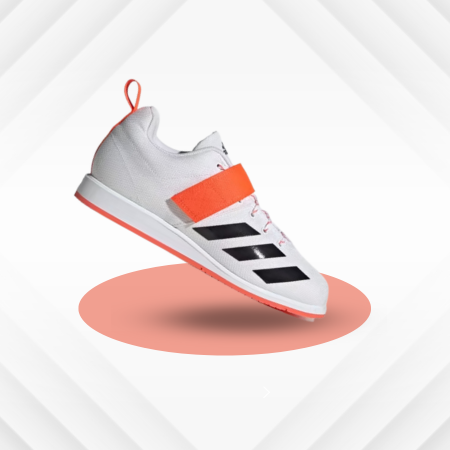
Designed specifically for weightlifting, the Adidas Powerlift 4 boasts a solid, non-compressible sole and a moderate heel height, making it an excellent choice for squats. The shoe’s upper is constructed from durable synthetic materials, ensuring long-lasting performance. The Velcro strap provides additional ankle support and a secure fit, while the grippy outsole ensures excellent traction during your lifts.
2. Reebok Legacy Lifter II
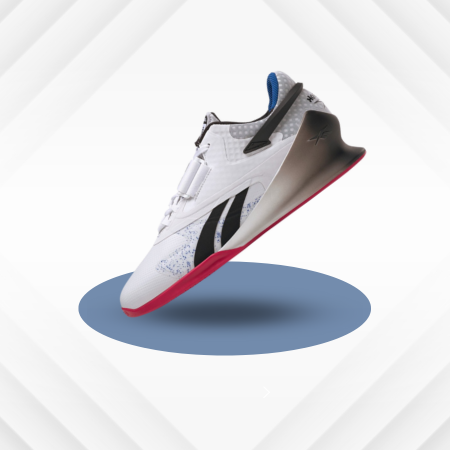
The Reebok Legacy Lifter II is a popular option for powerlifters and weightlifters alike. With a raised heel and a sturdy TPU sole, this shoe provides a stable platform for squats, while still being suitable for deadlifts. The breathable mesh upper and dual straps offer a comfortable, secure fit. Its durable construction ensures that the Legacy Lifter II can withstand the rigors of heavy lifting.
3. Sabo Deadlift Shoes
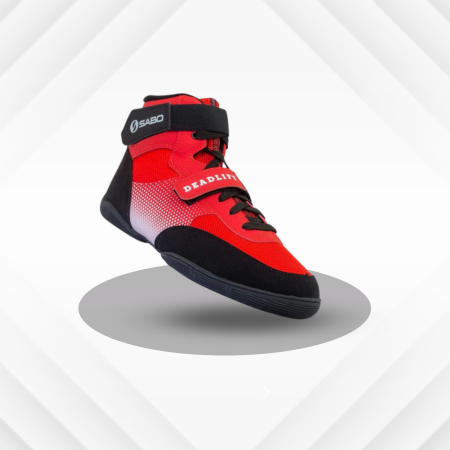
As the name suggests, the Sabo Deadlift Shoes are specifically designed for deadlifting. These shoes feature a flat, non-compressible sole, allowing for maximum power transfer and stability during your lifts. The high-top design and Velcro straps offer excellent ankle support, while the side support helps keep your foot locked in place. The durable, non-slip outsole ensures you stay grounded throughout your lifts.
4. Converse Chuck Taylor All Star High Tops
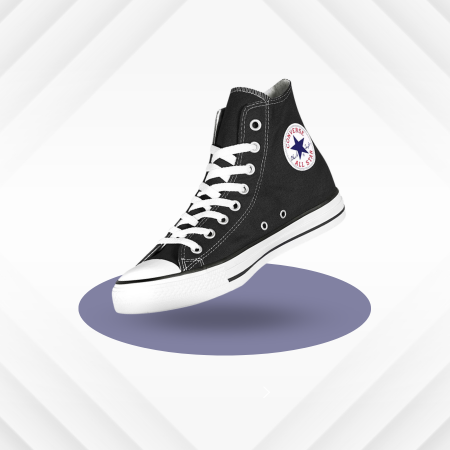
While not explicitly designed for lifting, the classic Converse Chuck Taylor All Star High Tops have long been a favorite among powerlifters for their flat, non-compressible sole and minimalistic design. The high-top version provides additional ankle support, while the canvas upper offers breathability and durability. For those on a budget or seeking a versatile shoe for both lifting and casual wear, the Converse Chuck Taylors are a solid choice.
5. Nike Romaleos 4
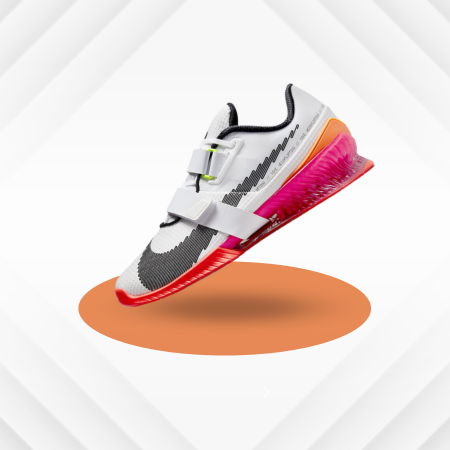
The Nike Romaleos 4 is a top-tier weightlifting shoe that excels in both squats and deadlifts. With a raised heel and a rigid, non-compressible sole, these shoes provide a stable platform for heavy lifting. The Flywire technology and dual straps ensure a secure, customized fit, while the breathable mesh upper keeps your feet cool during intense workouts. Built to last, the Romaleos 4 is a premium option for serious lifters.
6. Inov-8 Fastlift 370 BOA
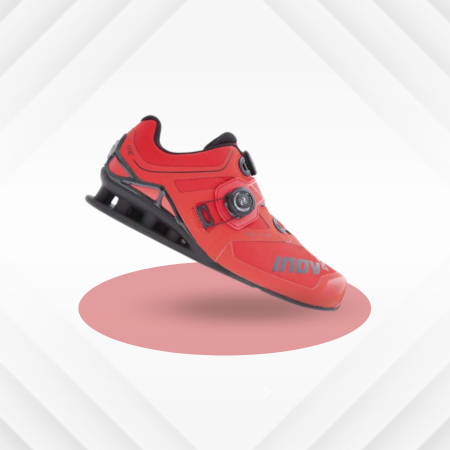
The Inov-8 Fastlift 370 BOA is a versatile weightlifting shoe that offers excellent support and stability for both squats and deadlifts. The shoe features a raised heel and a rigid, non-compressible sole, providing a solid platform for lifting. The innovative BOA closure system ensures a secure, customized fit, while the breathable mesh upper keeps your feet comfortable during intense workouts. The sticky rubber outsole offers superior traction to keep you grounded during your lifts.
7. NOBULL Lifter
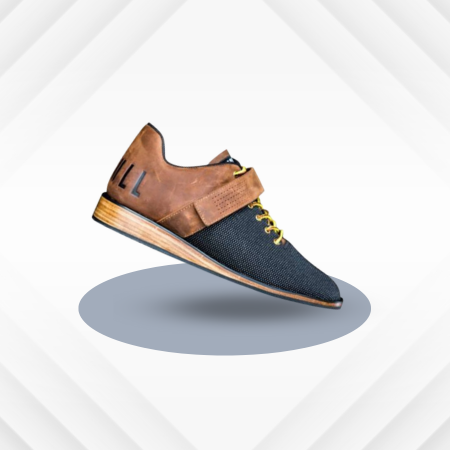
The NOBULL Lifter is a stylish and functional shoe designed for weightlifting enthusiasts. The shoe features a raised heel and a rigid, non-compressible sole, providing a stable base for squats. The leather upper and adjustable straps offer a secure, comfortable fit, while the molded sock liner adds extra support and cushioning. The durable, high-traction outsole ensures you stay grounded during your lifts, making the NOBULL Lifter a reliable option for those focused on squats and deadlifts.
8. New Balance Minimus Prevail
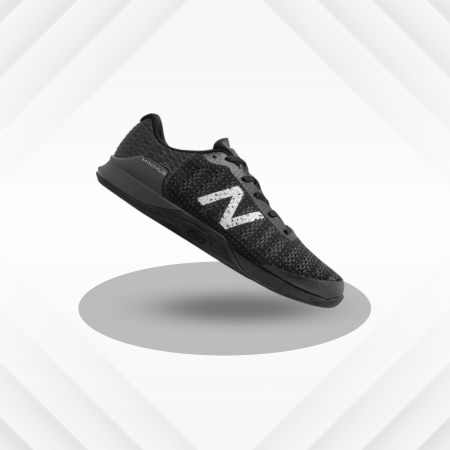
The New Balance Minimus Prevail is a minimalist shoe designed for those seeking a more natural lifting experience. The shoe features a flat, non-compressible sole, making it suitable for both squats and deadlifts. The lightweight, breathable mesh upper ensures a comfortable fit, while the external heel counter provides additional stability and support. The Vibram outsole offers excellent traction and durability, making the Minimus Prevail a great choice for lifters who prefer a more minimalist approach.
9. Do-Win Classic Lifter
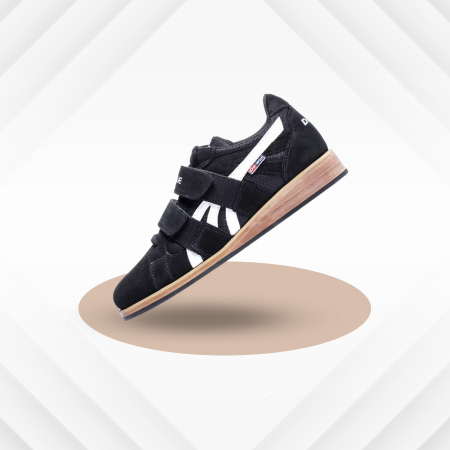
The Do-Win Classic Lifter is a tried-and-true weightlifting shoe that has gained a loyal following among powerlifters and Olympic weightlifters alike. The shoe features a raised heel and a non-compressible sole, providing a stable platform for squats. The leather and mesh upper offers a comfortable, breathable fit, while the double straps ensure a secure, customized feel. The Do-Win Classic Lifter’s outsole is made from a high-traction rubber compound, allowing for optimal grip during your lifts.
How to Choose the Ideal Shoes for Squats and Deadlifts
Heel Height: The Great Debate
One of the primary factors to consider when choosing shoes for squats and deadlifts is heel height. A raised heel can help improve the squat depth and ankle mobility, making it a popular choice for Olympic weightlifters and individuals with limited ankle flexibility. However, a flat sole is generally preferred for deadlifts, as it allows for better power transfer and a more natural lifting position. It’s essential to find a shoe with a heel height that aligns with your specific lifting goals and biomechanics.
Ankle Support and Stability
Proper ankle support can make a significant difference in your lifting performance, particularly when it comes to stability during heavy lifts. Look for shoes that offer adequate support without being overly restrictive or uncomfortable. High-top shoes and those with adjustable straps can provide a secure, customized fit, ensuring that your feet and ankles are well-supported throughout your lifts.
Material and Durability
The rigors of heavy lifting demand a shoe that can withstand the test of time. Opt for shoes constructed from high-quality, durable materials, such as synthetic leather or robust canvas. Keep in mind that breathability is also important, particularly during long training sessions. Shoes with mesh or perforated uppers can help keep your feet cool and comfortable.
Traction: Staying Grounded
A shoe with a grippy outsole is crucial for maintaining proper form and technique during squats and deadlifts. Slipping during a heavy lift can lead to injury and compromised performance. Look for shoes with non-slip outsoles made from materials such as rubber or thermoplastic polyurethane (TPU), which offer excellent traction and stability.
Fit and Comfort: The Foundations of Success
Last but not least, prioritize finding a shoe that fits well and feels comfortable on your feet. A poorly-fitting shoe can cause discomfort, limit performance, and even lead to injuries. Consider factors such as the width and shape of your feet, as well as any specific fit preferences you may have. Don’t hesitate to try on multiple sizes and styles to find the perfect fit.
Frequently Asked Questions
1. Can I wear the same shoes for both squats and deadlifts?
While some lifters prefer specialized shoes for each exercise, many opt for a hybrid shoe that can be used for both. Ultimately, it comes down to personal preference and performance goals.
2. Can I use weightlifting shoes for other exercises?
Weightlifting shoes are specifically designed for stability and power transfer during heavy lifts. They may not be ideal for activities that require more flexibility and cushioning, such as running or plyometrics.
3. How often should I replace my squat and deadlift shoes?
The lifespan of your shoes depends on factors such as frequency of use, the intensity of your workouts, and the quality of the shoes. Generally, it’s a good idea to replace your lifting shoes when they show signs of excessive wear, such as a worn-out sole or compromised support.
Final Words
Investing in a quality pair of shoes for squats and deadlifts can dramatically improve your performance, comfort, and safety during your workouts. By understanding the key features of a good squat and deadlift shoe and exploring the top options available, you can make an informed decision and find the perfect pair to suit your needs. Whether you’re a beginner looking for a versatile option or a seasoned lifter seeking specialized footwear, the right shoes can make all the difference in your training journey.
